Sullivan McCormick paced the sidewalk for 10 minutes before he had the courage to stop. Finally, leaning next to a fire hydrant on a street corner in Milwaukee, he reluctantly lifted the brown paper bag that read: “Pilgrim on a journey, need money.” His cold hand reached into the biting January air, but most passersby ignored him, or appeared to at least, and kept their eyes intent on their phones in avoidance.
Eventually a young family offered him $5, then two quarters came from the pocket of a middle-aged man. “I could feel this piece of pride just dislodged as I held up that sign for money,” McCormick says, admitting that he didn’t want to be looked at as a beggar. It was 2017, he wasn’t even 25 years old, and he didn’t really need the money. Yet he begged on that corner because he was a pilgrim on a journey.
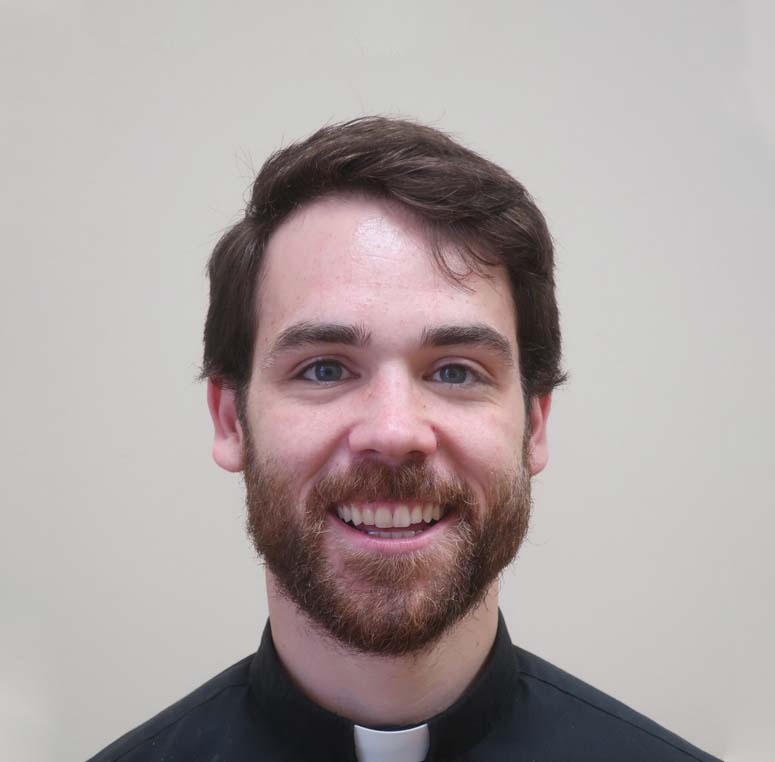
—Seminarian Sullivan McCormick
A week earlier he had boarded a bus in Kansas City, Missouri with just a few bucks, a list of suggested activities (begging for money among them), and a one-way bus ticket. He traveled to Akron, Ohio, where he spent the first night of his journey in a men’s homeless shelter. He later made his way to Milwaukee on the kindness of strangers and awoke that morning at a Catholic Charities shelter before he dared hoist his makeshift sign.
The 10-day journey wasn’t part of a gap year, a road trip, or simply a bout of bad luck. It was a formational experience required of Jesuit novitiates—the first program upon entering the Society of Jesus. With little money, a list of tasks, and a final destination, these young men take to the streets in an effort to become comfortable among discomfort and to survive only off of God’s providence.
The nights in the homeless shelters and conversations with those seemingly so different from himself allowed McCormick to feel provision firsthand and deepen his trust in God. That trust sustained him not only during the trip but beyond. “When I look back on the pilgrimage, it was concrete proof in my life that God provides,” McCormick says, adding that the confidence in God he gained from the pilgrimage helped him commit to taking first vows and continue his formation as a Jesuit brother.
At the start of his papacy in 2013, Pope Francis professed the importance of this modern-day discipleship in the apostolic exhortation Evangelii Gaudium (The Joy of the Gospel), stating, “I prefer a Church which is bruised, hurting and dirty because it has been out on the streets, rather than a Church which is unhealthy from being confined and from clinging to its own security.” In response, immersive experiences are taking on an essential role in vocational discernment for those called to religious life and laypeople alike.
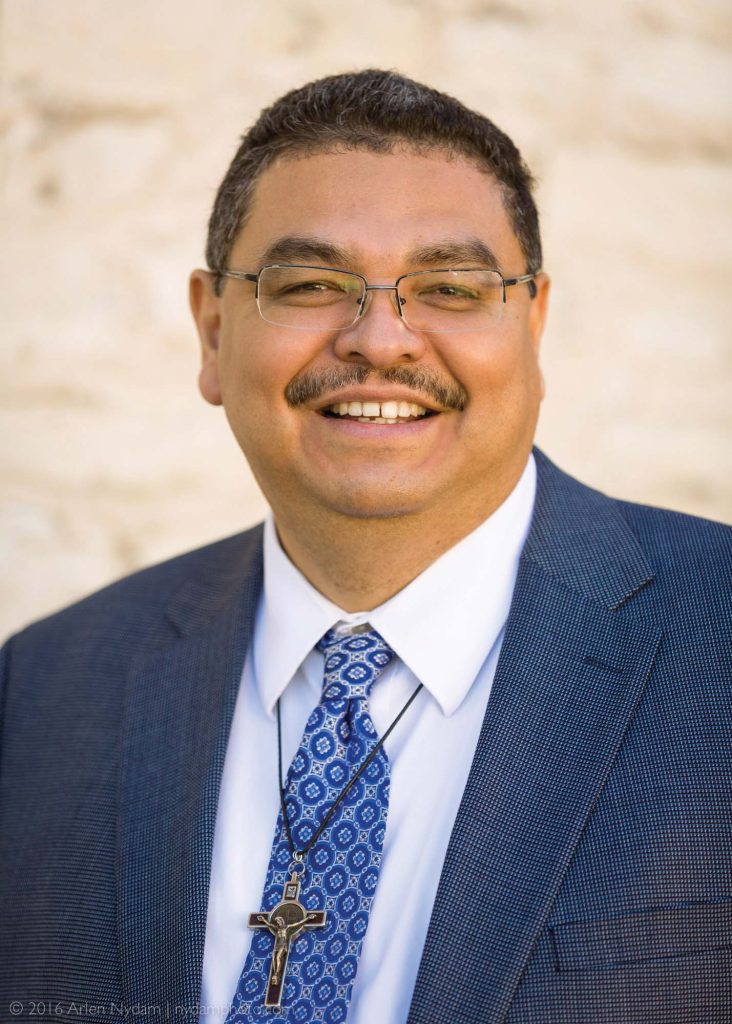
—Deacon Guadalupe Rodriguez
A lifelong Texan, Deacon Guadalupe Rodriguez serves as associate director of diaconal formation for the Diocese of Austin, where he co-coordinates the annual street retreat. Open to everyone, the street retreat is now required training for the diocese’s deacons in formation (a five-year process in total). For three nights, the group sets out to sleep on sidewalks and share meals at community shelters.
“Deacons were birthed for the sake of caring for the poor, widows, and orphans,” says Rodriguez. “Hence, they must experience in their whole being what it feels like to be hungry and completely vulnerable.” The intentions are companionship and solidarity as much as they are ministry and evangelization. Just as in McCormick’s pilgrimage, learning to trust is paramount. Rodriguez’s work harkens back to the Gospel of Luke, where Jesus instructs the apostles to take nothing on the journey and trust that God will provide.
Seminarian Daniel Sanchez was no stranger to working in the fields near his home in Yakima, Washington. The son of Mexican immigrants had logged many hours harvesting watermelons and blueberries with his father before he entered the seminary. In 2016 Sanchez interned with the Diocese of Yakima, where he was introduced to the migrant ministry program in which he has participated every summer since. This seminarian-led effort takes the church to the people. Before the pandemic, that meant meeting migrants at 4 a.m. in the fields to work alongside them.
Sanchez notes Bishop Joseph Tyson’s challenge to the seminarians. “If we want to be able to hold up the chalice containing Christ’s blood during Mass, then we also have to be ready to lift up a box of apples over our shoulders and be out in the fields with the essential workers who are providing the food for our table,” Sanchez says. He adds that it’s a matter of smelling like the sheep, referring to Pope Francis’ call on pastors to “be shepherds with the smell of the sheep.”
For Sanchez, working alongside migrant farmers challenges him to get out of his comfort zone. “Little by little, over the summer we would win their trust and they would open up. They would talk about their lives and questions they have about the faith,” he says. These discussions, held through cherry trees and over grapevines, gave him the chance to engage with the workers not just by giving witness but by listening as well. For Sanchez, that engagement helped him trust the opportunities Christ was providing in his life and attracted him to continue discerning the vocation of priesthood as a seminarian.
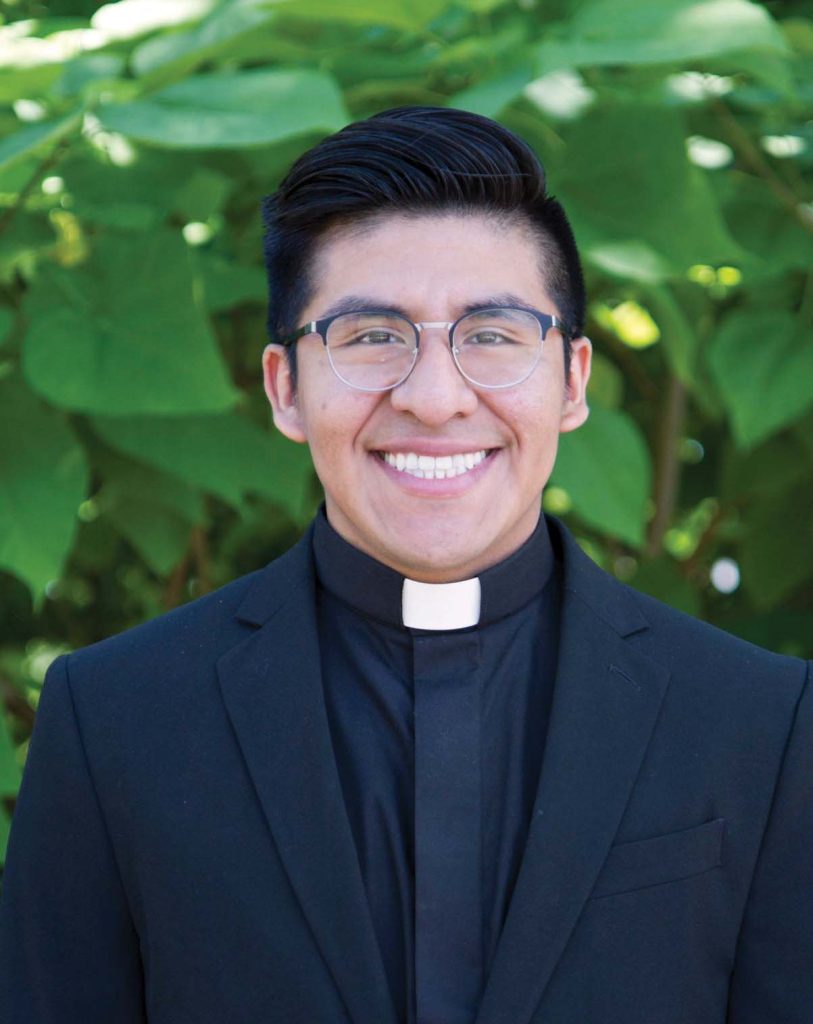
—Seminarian Daniel Sanchez
Still, immersive programs such as these have been contested and leave some questioning their ethics. Sanchez recalls feeling in the way at times, as migrant farmers bustled around him—their livelihood dependent on the efficiency of their work. Rodriguez recounts the time a street retreat participant was spat on and cursed at.
And McCormick remembers pulling a shelter attendant aside, telling him that he wouldn’t stay if it meant taking a bed or food away from someone actually in need.
McCormick concedes that, from a privileged perspective, the effects of experiences such as these can be ambiguous. In a recent retelling of his pilgrimage story for a class at Saint Louis University, where he is currently missioned for first studies (the second program in Jesuit formation), he was questioned about commonalities between these pilgrimages and poverty tourism. “I think what makes all the difference is awareness,” McCormick says. He points out that his experience made it possible for him to build relationships with those with whom he would not have had the opportunity to interact otherwise. It also inspired his commitment to walk alongside those struggling with addiction. He considers the pilgrimage and other immersive experiences effective tools that can become a valuable space of accompaniment, but only if we are honest about our realities.
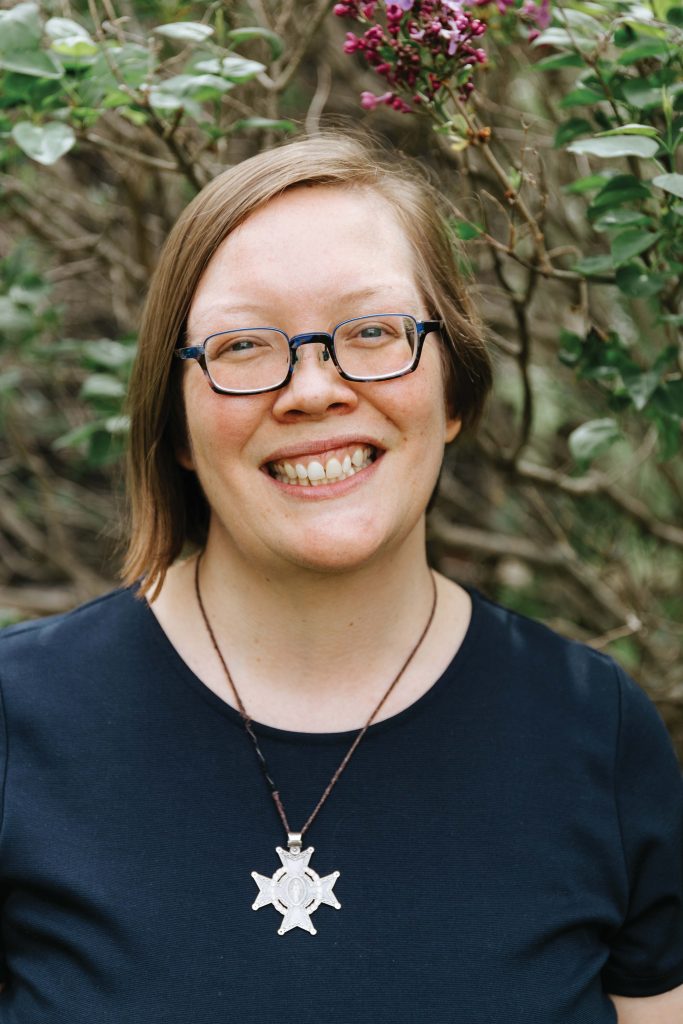
—Franciscan Sister of Perpetual Adoration Julia Walsh
Is it inherently wrong for the changed hearts and minds of those doing the service to be the end goal of the experience rather than the service itself? Would just dropping off your nearly expired leftover canned goods or cutting a check to a local homeless shelter be any better?
The answers are complicated, but according to Franciscan Sister of Perpetual Adoration Julia Walsh, creator of the Messy Jesus Business podcast, it all comes down to radical discipleship. She notes that the word radical is connected to the Latin word meaning “root.” And if we are going to be radical disciples, then we have to get to the root of what it means to be Christians.
“Being a Christian is all about love and imitating love in the way Jesus Christ modeled for us,” she says. Like McCormick, Walsh speaks of accompaniment, about knowing what it is like to walk in another’s shoes, and about relationship building as opposed to just charitable giving. “It’s not about becoming better than or achieving or accomplishing,” she says. “It’s about surrendering to whatever God’s will is . . . and being in relationship with one another, so that through our relationships we come to be closer to God.”
For Alan Graham, those relationships and the bouquet of Christ, as he calls it, are found on the streets. The original orchestrator of the Austin street retreats and founder of the parish nonprofit Mobile Loaves & Fishes, Graham divulges that the bouquet of Christ isn’t the smell of Easter lilies on the altar but instead the pungent smell found among homeless camps.
“You are going to find the beauty of the risen Christ among that assaulting smell,” Graham says. In the early years of operating the Mobile Loaves & Fishes food trucks, he became passionate about building relationships and friendships with his homeless neighbors. The food truck setup was specifically important because it placed those serving and those being served on the same side of the counter. “That ignited this human-to-human, heart-to-heart connection between us and our neighbors on the streets. I fell in love with them as I began to know their stories and got to know them on a first-name basis,” he says.
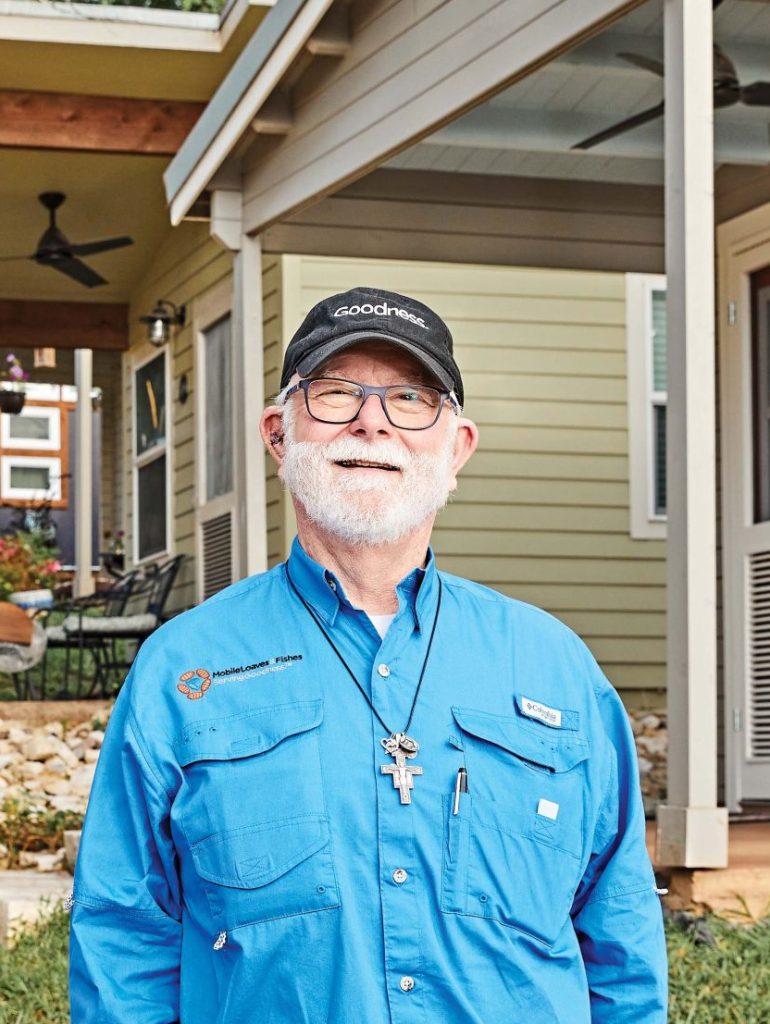
—Alan Graham
That love led to the first street retreat nearly 20 years ago, which became a major component of his own discernment, leading him to leave a successful career in real estate development and go into ministry full time. Today, Graham remains in solidarity with those he ministers to on a daily basis, having lived for five years in a 399-square-foot house with his wife on the grounds of Mobile Loaves & Fishes’ Community First! Village, a permanent housing initiative he conceived for those coming out of chronic homelessness.
Graham, who also hosts the Gospel Con Carne podcast, has personally participated in more than 50 retreats and through Mobile Loaves & Fishes has collectively shepherded more than 2,000 participants through the program.
With a Texan drawl, Graham expresses that the generosity he has encountered on the streets is nothing short of a miracle. “This isn’t absolute,” he says, “but I have found that people on the streets have a far deeper relationship with Christ than those of us who would attend Mass every Sunday, as a whole.”
When asked who gets more out of the retreats—the zealous weekend warriors with a warm bed waiting for them or the long-term homeless community—Graham says the transformation is greater for those participating in the retreats, rather than for those experiencing homelessness, because the men and women on the streets offer such a powerful connection to Christ.
Rodriguez believes that both the men in formation and the neighbors they encounter are mutually affected by the immersive nature of the retreats. “When the men in formation personally experience this poverty, their opinion of the homeless is completely changed and transformed,” he says. Many participants are moved to become more deeply involved in efforts to help the homeless community, from soup kitchens to the Society of St. Vincent de Paul. “Similarly, when the homeless hear of 37 men going homeless for the sake of the gospel, they are very moved and touched to the depths of their hearts,” he says.
On the West Coast, Michael Lovette-Colyer serves as vice president for mission integration at the University of San Diego. Lovette-Colyer’s own vocation and career were informed by his time in the Jesuit Volunteer Corps and personal experiences on a number of immersive mission trips. He says immersive experiences are uniquely powerful and can change and reorient the lives of those engaged in them in a positive direction.
Many times, our service experiences are limited to giving to charity (the Sunday collection and clothing drives) or standing in proximity (preparing sack lunches and working a soup counter). While these service experiences are worthwhile in many ways, Lovette-Colyer believes immersive experiences are crucial because they have the potential to become a spiritual experience through personal encounters. “It’s important to have our students . . . not just be near but with others, especially others in need, and to let that raise questions in them,” he says.
From his collegiate perspective, Lovette-Colyer believes these experiences can liberate students from preconceived messages they receive that the purpose of life is to make money and accumulate goods. He says the immersions help students set those notions aside and create space for them to find the truth and a higher aspiration for their desires. The experiences have led to students changing their majors and career paths. They serve as a door to evangelize to students who may not attend Mass or otherwise engage their Catholic faith.

—Michael Lovette-Colyer
However, Lovette-Colyer is quick to point out that the aim is always mutuality, to create experiences that serve both the students, who are coming from the privilege of higher education, and the communities they visit. He acknowledges that it takes careful planning and relationship building, but it prohibits one-off, drive-by, feel-good service projects that may have value but can also run the risk of benefiting those serving at the expense of those being served. Understanding the people being served as well as their culture and needs is critical.
“It’s good to know about theology and philosophy,” says Sanchez, who is on track to be ordained as a priest in 2025. “But if you don’t know who you are speaking to or how they receive a certain message, then none of that matters.” This knowledge and understanding of the communities involved is fundamental for ministry, and it isn’t learned in the classroom but out among the people.
That building of solidarity—instead of just throwing money at a mission site and walking away—is vital for these immersive missions to be successful on all sides and for those involved to grow in the culture of encounter that Pope Francis invites us to, says Mike Gable, a returned Maryknoll lay missioner and director of the mission office for the Archdiocese of Cincinnati.
Gable worked with Xavier University to develop an immersive mission experience in Nicaragua for many years and has fostered twinning relationships with parishes around the globe for the archdiocese. “Mission today is reciprocal,” says Gable, stressing that it isn’t just about work—it’s about getting to know others who are different from us. “We are all in mission, and that means the people we connect with on these trips can also mission to us.”
Gable emphasizes that if we don’t look at our mission efforts as mutual, then we are back in the era of colonialism and racism and a white savior mentality. He is firm in his belief that if heroism is driving your desire to go on a mission trip, then you should probably stay home.
Of course, Gable has seen the good that immersive experiences can bring to underserved communities, but he accepts that there is a darker side when efforts focus merely on charity rather than long-term solidarity. One example is a garment factory in Haiti that was forced to close because well-intentioned Americans had donated so many used clothing items that it could no longer compete with the free apparel.
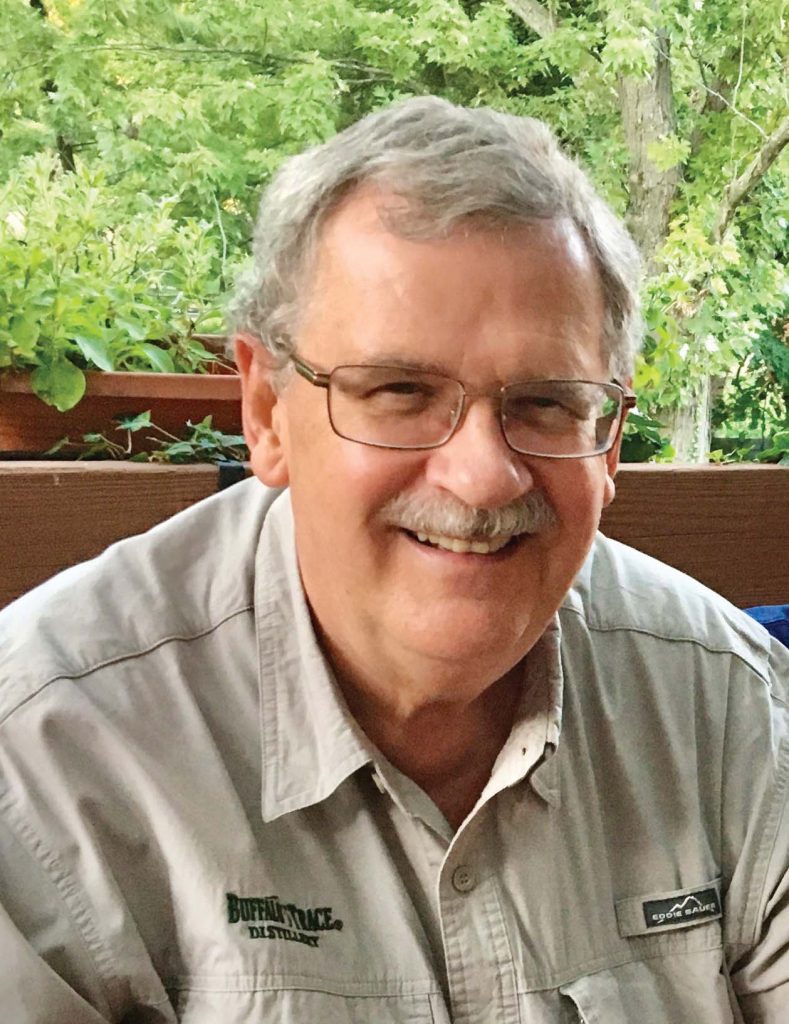
—Mike Gable
“So often we don’t realize when we walk in that we are still wearing our American eyes,” Gable says, suggesting that service projects need to have resilience built in so the locals can discover their own needs and generate their own income to keep them sustainable. But again, he underscores that in the long run it’s really about looking beyond our own boundaries and building relationships across borders.
In an effort to respond to the needs of Christians involved in immersive missions and other volunteer efforts, Gable and a group of his colleagues created the Third Wave of Mission Institute, offering training and video modules focusing on preparation, intentionality, and reflection to enhance immersive mission experiences for the good of all those involved.
Through this work Gable has realized that developing friendships with people of other cultures is one of the few ways to influence a change in attitude. “Oftentimes that means stepping out of your comfort zone, walking with people who are struggling, and suffering with them just as Jesus did,” he says. “Once you do that, you can’t vote the same way. You can’t think the same way.” He believes that vocational shifts happen when we move beyond pity and charity. Then we can begin to think more deeply about what the root causes of poverty are among these groups and remain committed to this long-term solidarity after the immersion is over—through civic engagement, career adjustments, or voting choices.
Gable recommends every Catholic, especially young adults, spend a year or two in service before settling into a career. “It will help you clarify your relationship with God, your vocation, and what you want to do with your life,” he says.
Many immersive experiences have been significantly affected by the COVID-19 pandemic, and everyone involved in coordinating efforts is excited to see programs begin to open up and move forward again soon. If you are considering participating in an immersive experience in the future, especially one outside of the United States, please speak with the proper local authorities to ensure the safety of yourself and others.
This article also appears in the June 2022 issue of U.S. Catholic (Vol. 87, No. 6, pages 10-15). Click here to subscribe to the magazine.
Image: Unsplash/Javy Luzania


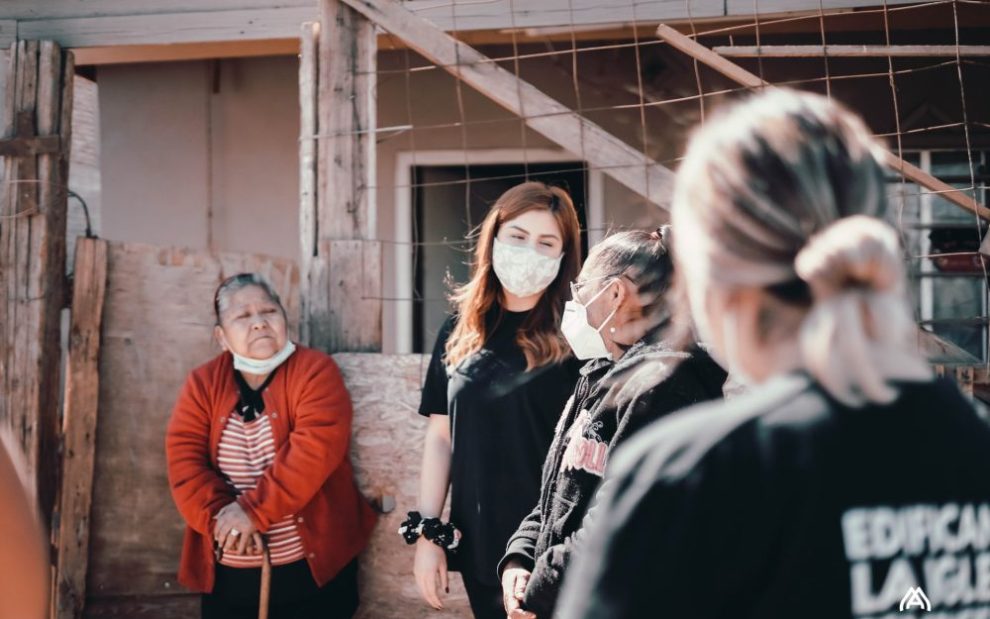













Add comment